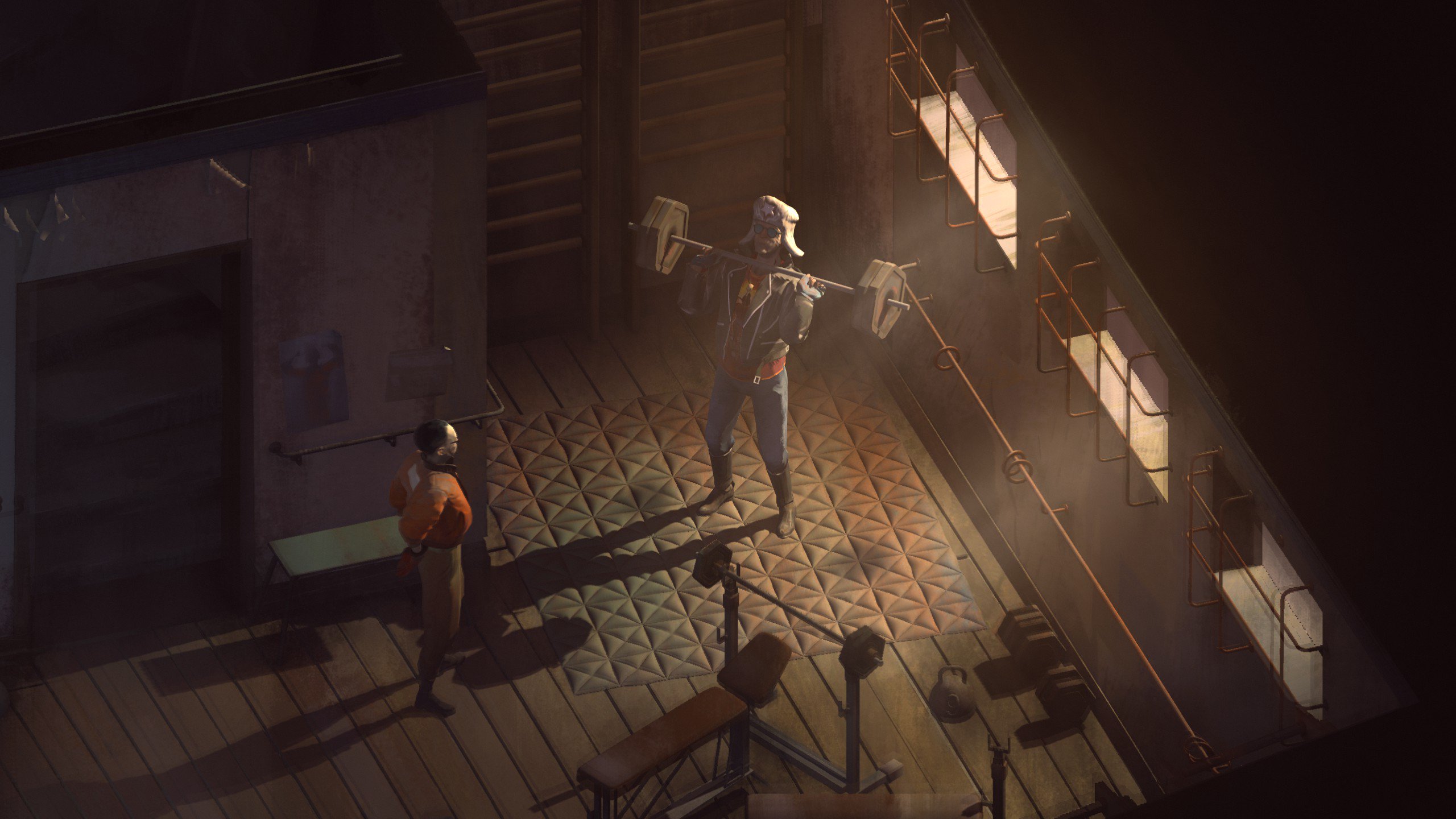
PC Gamer has been seduced by an amnesiac detective with a penchant for asking weird questions that make everyone feel uncomfortable. Disco Elysium, our 2019 Game of the Year, subverts the RPG systems we've become so familiar with and swaps the challenge of combat—which is non-existent—for challenging themes and topics instead. It tosses out conventions and raises the bar for RPGs, leaving us wondering if it's also raised expectations for new games like Cyberpunk 2077 and Bloodlines 2.
Fraser Brown: It's not just raised my expectations; it's made me worried I've turned into an RPG snob. I already roll my eyes whenever a developer announces that its RPG will have a crafting system, but now every RPG convention is making me sigh. I doubt I'm alone. After I admitted that Disco Elysium had ruined the Outer Worlds for me, I was surprised by how many people said they had the same experience, and it's not because The Outer Worlds is a crap RPG—it's a solid Obsidian adventure, but it's very familiar, and so are a lot of RPGs on the horizon that I was previously very excited about.
Games like Bloodlines 2 and Cyberpunk 2077 are beholden to a different set of expectations. They're set in already established universes and based on earlier RPGs. Bloodlines in particular has a lot to contend with, given the near mythical status of its wonky but wonderful predecessor. With Disco Elysium, there was nothing like that holding it back. The Witcher 3 also had a legacy to deal with, however, and that didn’t stop it from being exceptional. I started playing again recently and continue to be enamoured with it. The RPG systems it depends on might be ones we've seen thousands of times before, but the quality of the writing and quest design makes it timeless.
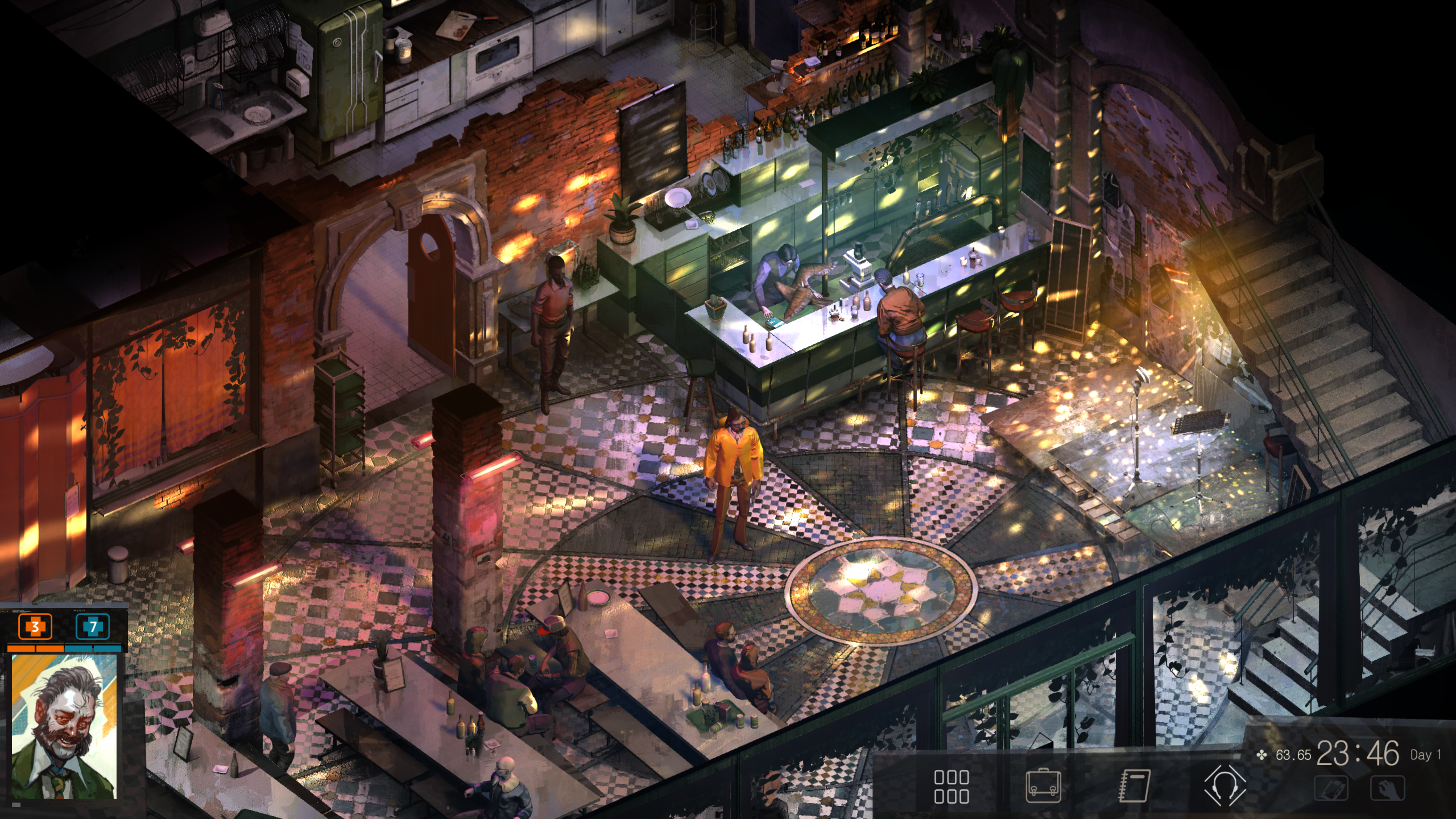
So maybe I can live with RPGs not relieving themselves of all their baggage, but I still hope Disco Elysium doesn't prove to be an evolutionary dead end, instead leading to more unconventional and adventurous games sprouting in its wake. I don't mean more Disco Elysiums, though; the genre is so broad that we should be overwhelmed with variety. That means I'm also open to being wowed by an RPG with loads of crafting and combat, as long as they're not just checking a box. There's loads of novel stuff that can be done to the more staid elements of modern RPGs.
Tom Senior: Disco Elysium feels more like interactive fiction than an RPG to me. Technically there are stats and you can level up aspects of your personality, but that's mostly in service of giving you dialogue choices. I love Disco Elysium, but it hasn't damaged my enthusiasm to explore beautiful new worlds in RPGs. It's going to be an exciting year, as the new console generation arrives and we see another audiovisual leap in standards, RPGs are well placed to give us the best journeys and stories of the new generation.
Much as I love the game, and its sense of humour, Disco Elysium has a nihilistic streak that I can only put up with for so long. I still love a big spectacular fantasy story, ideally with some jokes. That made Outer Worlds fun last year. After the disappointment of last year's Fallout I'm keen to see Bethesda get back to what they're really good at—big singleplayer sandbox worlds. Disco Elysium uses RPG mechanics brilliantly to portray the internal struggles of a very broken detective, but there are more stories to be told with the medium, and I can't wait to enjoy those stories.
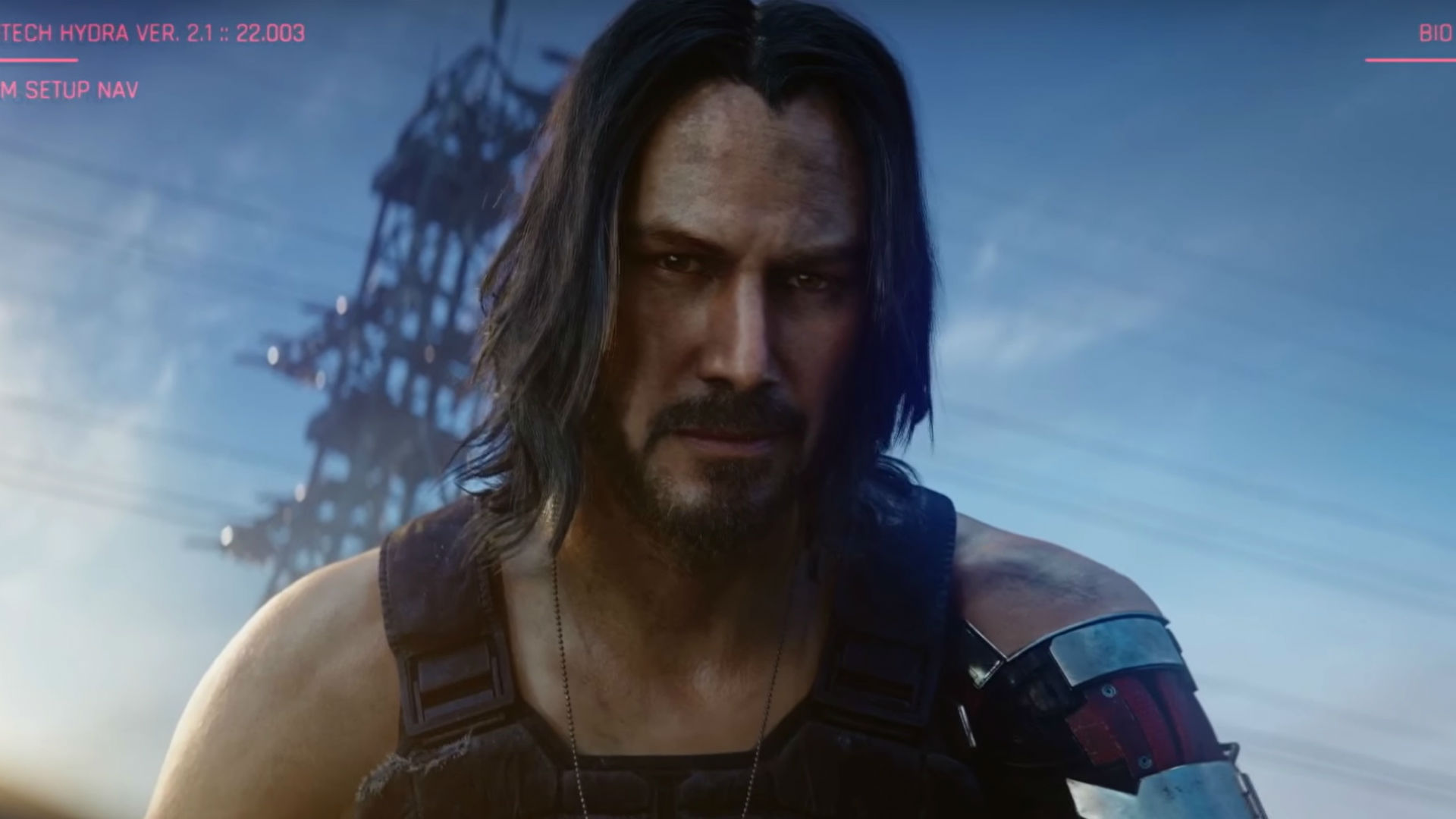
Chris Livingston: I was only maybe ten minutes into Disco Elysium when I had a very clear thought: "I don't think I've ever played a game quite like this." It's not like everything it does is revolutionary but it seemed obvious to me right away that it was just operating on a different level than other RPGs I've played. Every little interaction and discussion and observation and examination could be followed down a wormhole full of surprises and horror and humor. I guess I'm used to quickly examining a few things in a room and then moving on but here were these long, intricate interactions and discussions over minor objects like a mirror or necktie. It took what felt like ages just to make my way out of the hotel you begin the game in, and I was already overloaded with information and intriguing mysteries and choices I regretted making. I can't remember any RPG that so quickly had me off-guard.
Keep up to date with the most important stories and the best deals, as picked by the PC Gamer team.
It was rather exhausting, really, and definitely not something I want from every RPG going forward—I'm very happy with games like The Outer Worlds because they're fun and breezy and don't hammer your brain into mush every couple of minutes. I don't expect (or want) every new RPG to try to emulate DE, but it's great to see a game come along that moves the goalposts a bit, something for other RPG designers to at least have in the back of their minds when they're making their next game.
Tyler Wilde: To add to what Chris said about the little things, what sets Disco apart to me is that looking at something or speaking to someone characterizes the protagonist as much as the world or NPC in question. Audio logs are over, now give me introspection and dread because I clicked on an inanimate object.
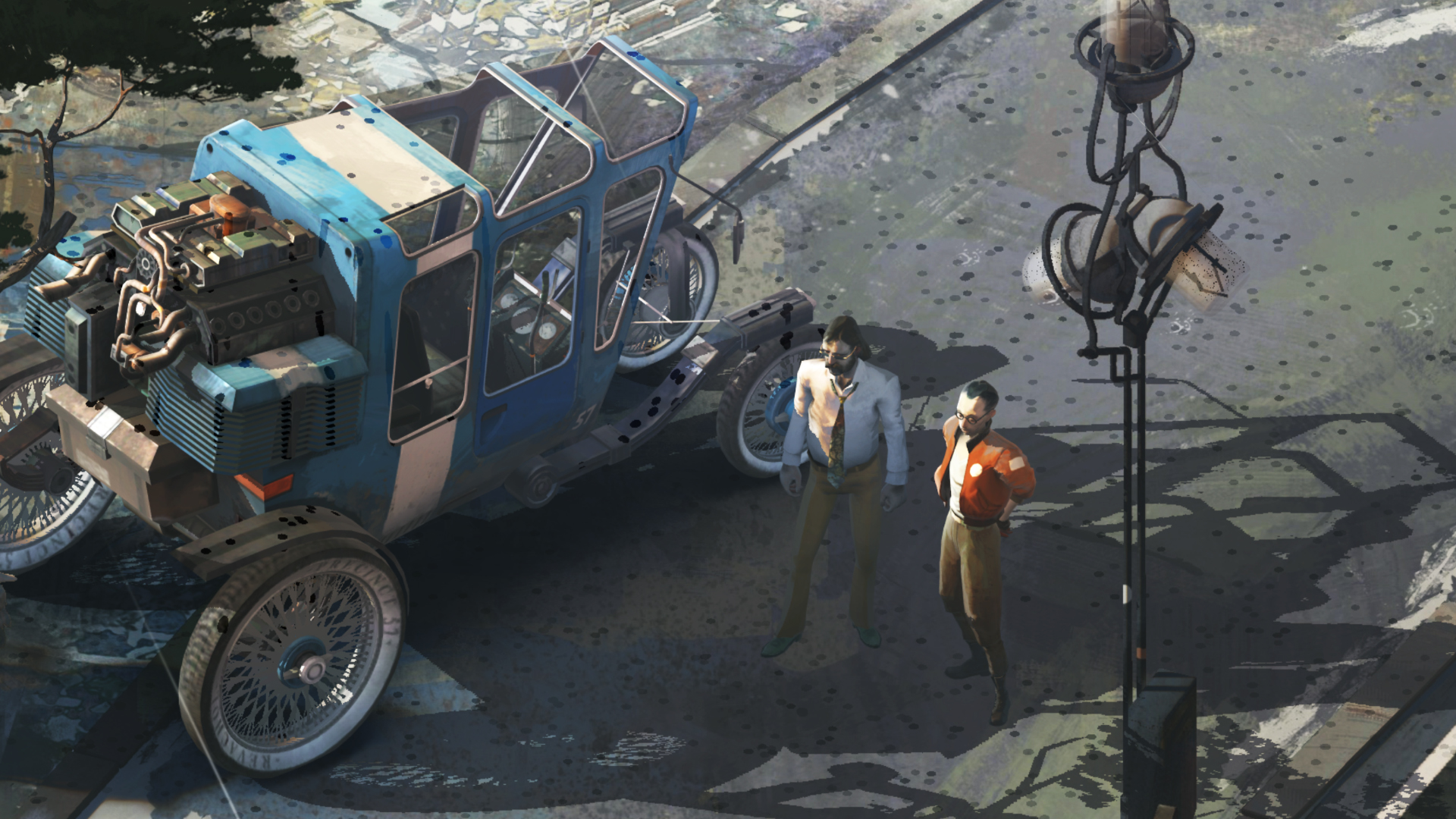
As an example series a lot of people have played: Much of Mass Effect's universe is explained to Shepard by NPCs or codex entries, and companions largely just tell her their backstories. I never worried about contradicting Shepard's internal logic or affecting her emotional state when making a decision, because she never fretted over things, or contemplated objects that made her sad, or did anything to indicate an internal life (it was my feelings that mattered, really). Done with a bit more Disco flavor, Shepard would've read those codex entries and interpreted her companion's stories along with us, reacting to them internally, processing them, characterizing her, her friends, and the galaxy at the same time.
I wouldn't object to more Disco-style games, though in parts I wished it'd just get to the point instead of tickling the edges of ideas and making me jog back and forth between informants and informees—there are moments in every story-driven game where I wish it would just be a damn novel so that I can get on with it. But even without replicating its particularities, I do hope Disco is taken as a cue to experiment more with dialogue and characterization. I don't think it instantly raised any expectations for me, but it provides an example of one way to push the genre away from flat protagonists who act primarily as player avatars, which I don't think is desirable despite all the games which treat it as the ideal norm.
James Davenport: I don't think Disco Elysium has raised my expectations for the genre as a whole. I'm playing through The Witcher 3 again, and I like the conventional combat and level-up system. I wouldn't change a thing about the even more conventional Divinity Original Sin 2 post-Disco. I'm all for parties with casters and rangers and knights fighting the same old fantasy bastards. Just tell me a good story and build systems around it that best serve the fiction.
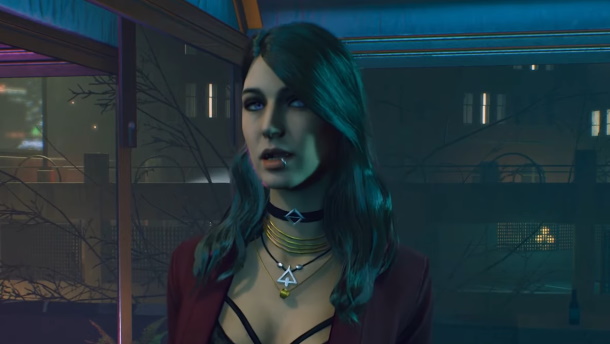
But Disco Elysium did remind me that RPG storytelling and systems don't have to fit the same mold that D&D created back when. I want my dungeons and my dragons, but I also want postmodern adventures through an alcoholic's tortured mind. RPGs should be more genre agnostic in terms of the stories they tell. Give me an RPG library as diverse as deep as the library down the street from me. We've seen plenty of sci-fi and fantasy, and Disco is basically a stab at a China Mieville RPG. Let's seem more realist historical fiction, absurdist comedies, cosmic horror, Downton Abbey: The RPG—you get the idea. Good writing and bespoke RPG systems make for fascinating stories, and Disco Elysium is just the beginning of a new wave.
Andy Kelly: The most interesting thing about Disco for me is how it features as much conflict as the RPGs that inspired it, but they all take place in text form: in conversations, or inside the protagonist's fractured mind. It’s a game filled with battles—but mental ones—whether it's a tense stand-off with a suspect, or trying to get information out of a tight-lipped witness. That's something I'd like to see more of in RPGs.
Like James, I still want to play RPGs with fantasy settings, parties of heroes, magic, and all of that. But Disco is proof that you can create a compelling RPG with a contemporary setting, that isn't about destiny and prophecies and ancient evil orders. You can make an RPG about a murder in a grimy city, and it's every bit as compelling as one about a windswept hero carving their way through a magical realm.
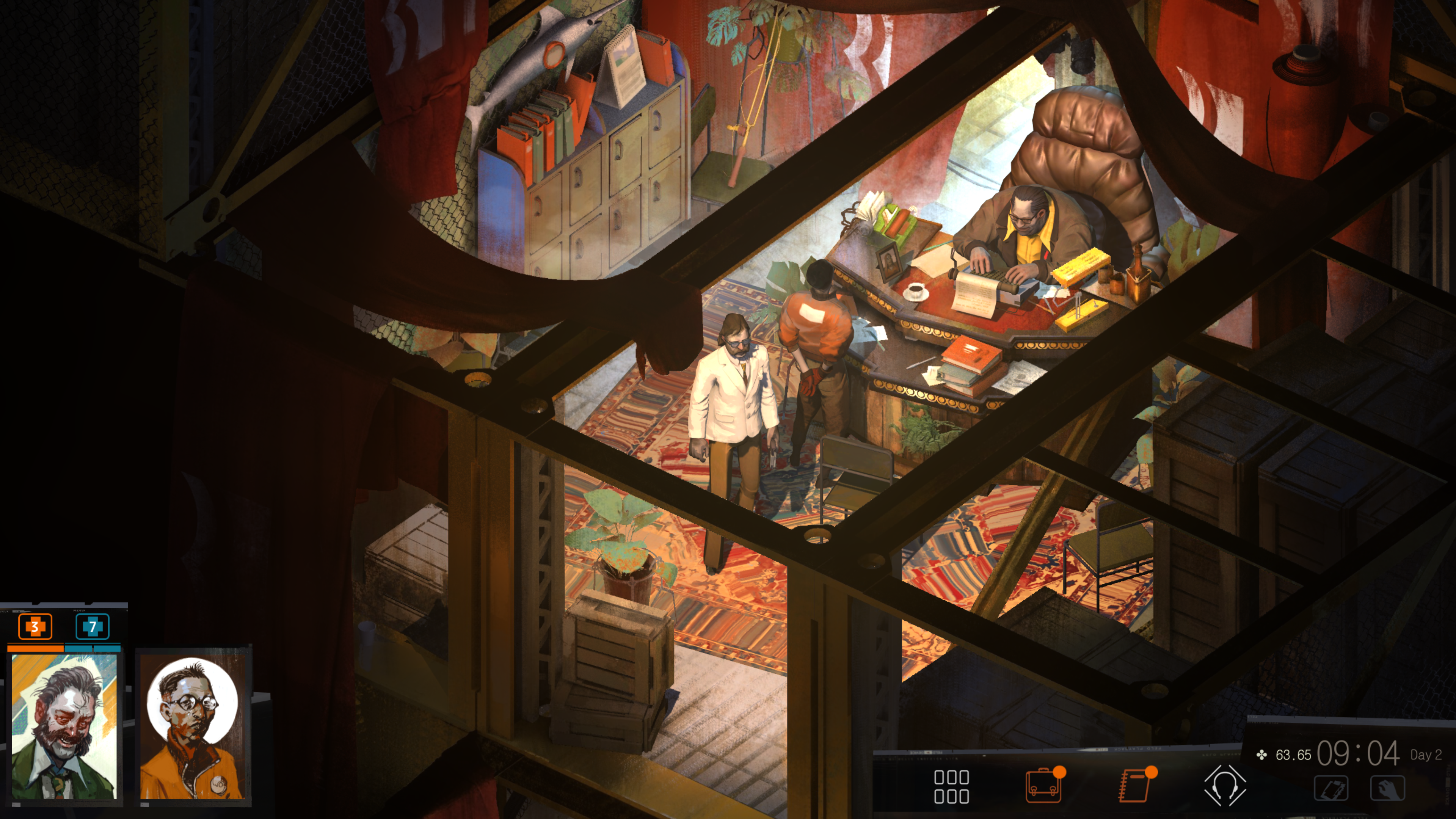
Disco is a great game—one of the best on PC—but I would love to see that style of writing, dialogue, and quest design in a more dynamic, reactive, perhaps three-dimensional world. I love the idea of a game with this much depth of role-playing, but in a world that feels less static. I really hope the sheer volume of GOTY awards Disco won will encourage developers to think about RPGs in a more open-minded, experimental way, because it's clear there's an audience for it.
Robin Valentine: I’m not sure a game has ever shown up its contemporaries in quite the same way as Disco Elysium does. It’s not really about the specific ideas that it has – it’s not like I now want the next Dragon Age to have talking skills and radical centrism. What’s important is that the ideas it has are genuinely new. The game takes all these established RPG tropes, that are so deeply ingrained, and totally reimagines them to fit what it’s trying to do. In the process, it exposes just how stagnant and backward-facing the genre’s become. Even truly great RPGs of the last decade have mostly focused their efforts on scale and writing—they’ve taken fundamental things like skills, character-building, and dialogue trees completely for granted, more often than not.
I think a lot of that comes down to gaming’s relationship with the tabletop RPGs that birthed the genre. The pen-and-paper scene is more popular, vibrant, experimental, varied, and exciting than ever in 2020. Those are the games that inspired the developers of Disco Elysium—its hugely reflective of the current scene. Meanwhile, the biggest upcoming videogame RPGs are based on… tabletop games from the 90s. I’ve been saying for a long time that there’s something deeply wrong with that state of affairs, promising as the likes of Cyberpunk 2077 and Bloodlines 2 may look.

As someone who loves RPGs, I really want Disco Elysium to be a shot in the arm for the genre. Major developers need to be looking at it and thinking "how did a handful of blokes from Estonia do this with their first game, and we’re still just making skill trees?" It should be an invitation for studios to think differently, be bolder.
And if they do, I think it’ll benefit games as a whole. There’s an argument that the RPG genre is the most influential around—these days a game’s barely considered complete if it doesn’t have level ups and loot in it somewhere. If RPGs can take a new leap, then maybe everyone else will once again follow.
Fraser Brown: Now that you’ve said it, Robin, I kinda do want to see the next Dragon Age do talking skills and radical centrism.
The collective PC Gamer editorial team worked together to write this article. PC Gamer is the global authority on PC games—starting in 1993 with the magazine, and then in 2010 with this website you're currently reading. We have writers across the US, UK and Australia, who you can read about here.


